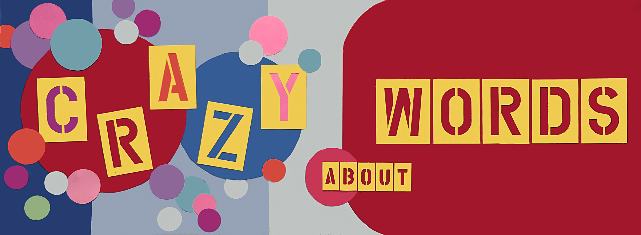Words we seldom speak
Joe Mc Kay’s “Crazy About Words”
… toasting our language since 2003!
A recent New Yorker cartoon depicts a mother imploring her teenage daughter, “Try and tell me what’s bothering you, dear—use your S.A.T. words.” Even before I stopped laughing, I knew I had to do this column!
The child might respond, “I suffer quotidian depression because my academic colleagues do not regard me as estimable. They say I am querulous.” What she means is, “I’m down in the dumps all the time because my school friends don’t like me. They say I’m always complaining.”
Only quotidian…"daily" is not on a list of 5,000 top SAT words I googled. It’s a word I like very much, but hesitate to use in conversation, because a) I’m worried that “quotidian” is not used exactly the way “daily” is, but I’m not certain of the difference, and b) I want to be considerate of my interlocutor.
David Brooks, commenting on the recent election on PBS, stumbled in pronouncing the word cavil… minor objection. He blushed, then stammered with charm and humor, through three possible pronunciations, acknowledging that he didn’t know if the accent went on the first or second syllable (it’s the first), and whether the “i” should be pronounced as in “it” or as in “niche” (as in “it”). This is another reason many of us don’t speak words we learned for our SATs and see mostly in print.
For me, promontory…"a headland" falls into this category… I used to mangle it, in part because I spelled it with an extra “o,” as though three “o”s were not enough! Finally, I stopped using it! Check it out on, www.howjsay.com a free online pronunciation dictionary. (If I lived on the northern end of Great Salt Lake in Utah in the Promontory Mountains, I’d be accustomed to saying the word!)
Some words we don’t utter, because we worry about sounding pretentious. Once an altar boy, I’ve always loved the word acolyte but I use assistant or follower in conversation. And how about prolix… long, drawn out, using too many words? (“His essay was prolix.”) It’s simpler to use “verbose or long winded” in conversation. Besides, it doesn’t sound like an adjective to me. My first reaction when I come across it is that it’s a chemical term!
A recent NYT opinion column critical of motivational speaker Tony Robbins said, “…his trademark smile starts to resemble a rictus.” … a mouth gaping open, a fixed grimace. This word too feels most appropriate for print, which gives the reader a chance to recall it or look it up, rather than leaving a listener fixing one on his face.
Misanthropic… hating mankind seems a quintessential SAT word from the list. Faced with expressing the idea verbally, except possibly at an academic gathering, most of us are apt to say, “He has no use for people.”
My high school Latin teacher, Brother Alfonse Patrick, a huge Hibernian with a love of the language as big as his penchant for teaching it the old fashioned way, impressed on me over four years that, if you studied Latin, you could easily determine the meaning of any English word having a Latin root. Came my NYS English Regents exam, we were asked to define obsequious by using it in a sentence. Brother Patrick whacked me on the head with the Latin textbook when he learned of my response: “After you take a shower, the obsequious thing to do is dry yourself.” Well, “sequere” does mean “to follow” as in “sequence”… but I was ignoring the “ob-“ which changes it to “following in a slavish way.” Needless to say, I cannot to this day say the word without feeling funny.
In real life, our cartoon child, aware of the power of monosyllabic responses to irk parents, probably would have answered her mother, “Whaaat??” Then, having been reminded that her SATs are coming up, she goes to a great website, www.freerice.com where she has fun practicing her vocabulary through multiple-choice questions. You can too. For every correct answer, the site donates ten grains of rice to the UN World Food Program. How cool is that!
Joe Mc Kay
December 2012
Comments, questions, and suggestions for future columns are happily received by e-mail at crazyaboutwords@gmail.com






